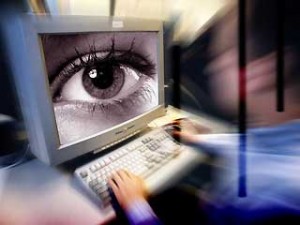
We’ve all heard a lot about digital security these past few years and it always gets to me that “digital security” has remained a buzzword – often used to spread fear and panic as well as appeal to the masses as a means to sell new security products, etc. Digital security can be boiled down into some basic principles and practices that you can do on your own (some software may be needed in certain cases but most can be done on your own). These are basic principles but in my experience adhering to the basics will prevent major problems from occurring.
You are the first line of defense.
No computer program, algorithm, or machine has the complete ability, as least yet (!), to match the intellect of a human being in terms of digital security. Yes, these programs can protect us much better than we can – in a lot of ways – but having an alert mind on our shoulders will make a world of defense in protecting yourself. When you’re online remain alert and vigilant to online threats – operating with the mentality that “the internet can do no harm” is on the verge of living a fantasy. Don’t go overboard but trust and use your natural intuition about websites, links, and attachments as you protect yourself online.
When online, be aware of red flags and recognize when things seem out of place or odd.
I have recently been receiving a lot of spam from hotmail accounts (which seems to be a favorite target of hackers these days) and the spam I am receiving is incredibly deceptive. Spammers are now adding prefixes such as “RE:” and “FW:” to email subjects to entice individuals to open messages. This is an example of a red flag you should be aware of – if a message seems out of place (like a “reply” to a message you didn’t send) chances are the email is spam. Another spam favorite is the giveaway of electronic devices – now, I don’t want to seem like I’m a pessimist but if something sounds too good to be true there is a higher chance that it probably is. I always suggest to users that they tread lightly with the “out of this world” type of promotions and have heightened senses when pursuing these types of links/sites.
Password protection is critical.
I’ve walked into many offices where passwords have been left on sticky notes underneath the keyboard because they are hard for people to remember. Granted, techies (like myself) are often guilty of making password requirements too complex but I always discourage the use of sticky notes near the computer simply because it allows very easy access to sensitive login information. Here are some tips for protecting your password that will save you the trouble of being hacked or having your accounts improperly accessed:
- Make your password case is sensitive with mixed characters and letters – stay away from common English words and phrases
- Commit to memorizing your password or store your passwords in a concealed place (and not under “P” for passwords either)
- Change your personal passwords every 6 to 12 months or whenever you feel your digital space may have been compromised
- Use a secure password management tool that integrates with your browser and websites/multiple passwords
Install an anti-virus program.
I keep saying this and it still amazes me how many people don’t have an anti-virus program on their computer. Everyone, including Mac users, should have an anti-virus program or internet security suite installed on their computer. If you’re worried about the cost of a program, I recommend the free version of AVG anti-virus or download one of the many trial versions of the security suites out there, like PC Tools or Kaspersky Anti-Virus. But trust me, the money for such programs is worth the investment!
I realize these things may seem like common sense but, with digital security, the common sense/trivial matters do make the difference between a big computer nightmare and digital bliss!
Share with me in the comments the tips and tricks that you use online to protect yourself.
